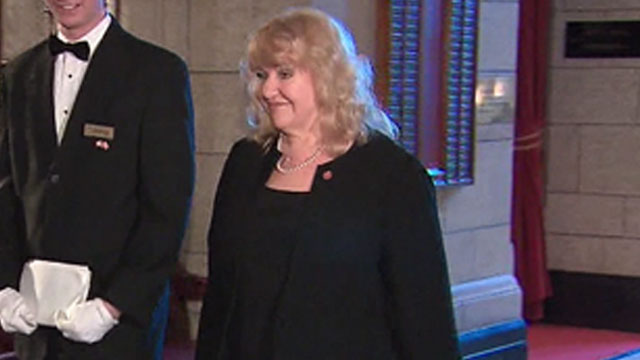Author Distances Himself from Senator Beyak’s Comments about Residential Schools
APTN National News
Beyak quoted the Toronto author at length during her controversial remarks on residential schools on March 7 in the Senate. She referred to his latest book – Their Home and Native Land – when discussing residential schools and some people wanting to rename Langevin block, the Prime Minister’s Office. During that speech she also said there was “an abundance of good” in residential schools. “There is absolutely nothing in Their Home and Native Land, in any op-eds I have written, in radio interviews, or in the material that I provided to her office at the beginning of February that would support her position,” said MacBain in a statement released Thursday. “Whatever good there might have been was the exception that proved the rule.” The PMO building, across the street from Parliament Hill, is named after Hector-Louis Langevin, who was involved with the Indian residential school system. Beyak has refused to apologize for her comments and was kicked off the Senate’s committee on Aboriginal Peoples late Wednesday. Jake Enwright, a spokesperson for interim Conservative leader Rona Ambrose, confirmed the decision in a statement late Wednesday. “Ms. Ambrose has been clear that Sen. Beyak’s views do not reflect the Conservative party’s position on residential schools,” Enwright said. Canada’s Truth and Reconciliation Commission spent six years examining the legacy of the government-funded, church-operated schools, infamous hotbeds of abuse and mistreatment that operated from the 1870s to 1996. The Conservatives were in power in 2008 when the federal government delivered an abject apology in the House of Commons to families and survivors, a fact not lost on Enwright. “It was Prime Minister Stephen Harper who made an historic apology to the victims of residential schools and launched the Truth and Reconciliation Commission,” he said. Earlier this week, Sen. Sandra Lovelace Nicholas, who sits on the aboriginal committee, said she was “shocked and dismayed” by her Senate colleague’s remarks. She said she would boycott the committee’s meetings as long as Beyak remained a member. Assembly of First Nations National Chief Perry Bellegarde has also called for Beyak to be removed from the committee. Early last month, Beyak told the Senate that she believed the schools were not all bad. “I speak partly for the record, but mostly in memory of the kindly and well-intentioned men and women and their descendants – perhaps some of us here in this chamber – whose remarkable works, good deeds and historical tales in the residential schools go unacknowledged for the most part and are overshadowed by negative reports,” said Beyak on March 7. Indigenous Affairs Minister Carolyn Bennett has called the comments unfortunate and misguided, calling them proof of a need to educate Canadians about the long-standing legacy of the schools. Sen. Murray Sinclair, who led the Truth and Reconciliation Commission’s exhaustive investigation into the impact of residential schools, was present in the upper chamber during Beyak’s remarks. The work of the commission lead by Sinclair was the result of the Indian Residential Schools Settlement Agreement, reached after residential school survivors took the federal government and churches to court with the support of the Assembly of First Nations and Inuit organizations. It was designed to help repair the lasting damage caused by the schools, and – in addition to compensating survivors – to explore the truth behind the program. – with files from The Canadian Press
|
.
Any original material on these pages is copyright © BishopAccountability.org 2004. Reproduce freely with attribution.
